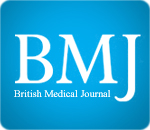[This is of great interest to the Mapping Pathways team as our work is quite similar. Very interesting!]
via British Medical Journal, by Ana Wheelock, Andreas B Eisingerich, Gabriela B Gomez, Emily Gray, Mark R Dybul, Peter Piot
Objectives To examine policymakers and providers' views on pre-exposure prophylaxis (PrEP) and their willingness to support its introduction, to inform policy and practice in this emerging field.
Design Semistructured qualitative interview study.
Setting Peru, Ukraine, India, Kenya, Uganda, Botswana and South Africa.
Participants 35 policymakers, 35 healthcare workers and 21 non-governmental organisation representatives involved in HIV prevention.
Results Six themes emerged from the data: (1) perceived HIV prevention landscape: prevention initiatives needed to be improved and expanded; (2) PrEP awareness: 50 of 91 participants had heard of PrEP; (3) benefits of PrEP: one component of the combination prevention arsenal that could help prioritise HIV prevention, empower key populations and result in economic gains; (4) challenges of PrEP: regimen complexity, cost and cost-effectiveness, risk compensation, efficacy and effectiveness, stigmatisation and criminalisation, information and training and healthcare system capacity; (5) programmatic considerations: user eligibility, communication strategy, cost, distribution, medication and HIV testing compliance and (6) early versus late implementation: participants were divided as to whether they would support an early introduction of PrEP in their country or would prefer to wait until it has been successfully implemented in other countries, with around half of those we spoke to supporting each option. Very few said they would not support PrEP at all.
Conclusions Despite the multiple challenges identified, there was general willingness to support the introduction of PrEP. Yet, strengthening existing HIV prevention efforts was also deemed necessary. Our results suggest that an effective PrEP programme would be delivered in healthcare facilities and involve non-governmental organisations and the community and consider the needs of mobile populations. Comprehensive information packages and training for users and providers would be critical. The cost of PrEP would be affordable and possibly segmented. Extensive counselling and innovative monitoring measures ought to be considered.
Read the rest.
[Content that is linked from other sources is for informational purposes and should not construe a Mapping Pathways position. Please look for us on Facebook here www.facebook.com/MappingPathways and you can follow us on Twitter @mappingpathways as well.]
via British Medical Journal, by Ana Wheelock, Andreas B Eisingerich, Gabriela B Gomez, Emily Gray, Mark R Dybul, Peter Piot
Objectives To examine policymakers and providers' views on pre-exposure prophylaxis (PrEP) and their willingness to support its introduction, to inform policy and practice in this emerging field.
Setting Peru, Ukraine, India, Kenya, Uganda, Botswana and South Africa.
Participants 35 policymakers, 35 healthcare workers and 21 non-governmental organisation representatives involved in HIV prevention.
Results Six themes emerged from the data: (1) perceived HIV prevention landscape: prevention initiatives needed to be improved and expanded; (2) PrEP awareness: 50 of 91 participants had heard of PrEP; (3) benefits of PrEP: one component of the combination prevention arsenal that could help prioritise HIV prevention, empower key populations and result in economic gains; (4) challenges of PrEP: regimen complexity, cost and cost-effectiveness, risk compensation, efficacy and effectiveness, stigmatisation and criminalisation, information and training and healthcare system capacity; (5) programmatic considerations: user eligibility, communication strategy, cost, distribution, medication and HIV testing compliance and (6) early versus late implementation: participants were divided as to whether they would support an early introduction of PrEP in their country or would prefer to wait until it has been successfully implemented in other countries, with around half of those we spoke to supporting each option. Very few said they would not support PrEP at all.
Conclusions Despite the multiple challenges identified, there was general willingness to support the introduction of PrEP. Yet, strengthening existing HIV prevention efforts was also deemed necessary. Our results suggest that an effective PrEP programme would be delivered in healthcare facilities and involve non-governmental organisations and the community and consider the needs of mobile populations. Comprehensive information packages and training for users and providers would be critical. The cost of PrEP would be affordable and possibly segmented. Extensive counselling and innovative monitoring measures ought to be considered.
Read the rest.
[Content that is linked from other sources is for informational purposes and should not construe a Mapping Pathways position. Please look for us on Facebook here www.facebook.com/MappingPathways and you can follow us on Twitter @mappingpathways as well.]


No comments:
Post a Comment